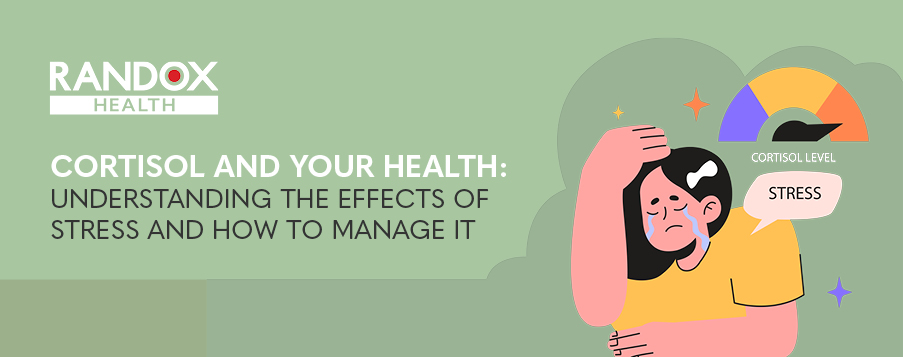07/11/2024
Stress has become a constant in modern life, from professional pressures to personal demands, and it can take a toll on both mind and body. The good news is that by understanding stress and taking active steps toward management, we can improve our resilience, mental health, and overall health. During Stress Awareness Week, we’re highlighting one of the body’s primary stress indications: cortisol.
UNDERSTANDING STRESS, CORTISOL AND THEIR IMPACT ON YOUR HEALTH
What is cortisol?
Cortisol is an essential hormone produced by the adrenal glands in response to stress. Its primary role is to help your body respond to stress, but it also plays a crucial role in various bodily functions, including:
- Regulating Blood Sugar Levels
- Controlling Metabolism
- Reducing Inflammation
- Assisting with Memory Formation
- Supporting the Immune System
How does cortisol affect your body?
Everyone has high cortisol levels from time to time, and levels fluctuate throughout the day. A spike in cortisol is a normal reaction to threats of harm, danger or stress. When you experience any kind of stress, whether it’s physical, emotional, or psychological, the hypothalamus in your brain sends signals to the adrenal glands to release cortisol. This release prepares your body to deal with the stressor by:
- Increasing glucose in the bloodstream to supply energy to muscles
- Enhancing the brain’s use of glucose
- Restricting non-essential functions, like digestion and reproduction, to focus energy on handling the stress
If you consistently produce too much cortisol it could indicate an underlying health problem.
High cortisol levels can cause a range of symptoms including;
- Weight gain around the face and neck
- Acne
- Fatigue
- Bruising easily
- High blood pressure
- Muscle weakness
Cortisol and stress
When you’re stressed, a series of signals is triggered in your body. These signals prompt your adrenal glands to release hormones like adrenaline and cortisol, which lead to a faster heart rate and a boost of energy as part of the “fight-or-flight” response.
Once the threat has passed, hormone levels normalise, and body functions return to their usual state.
However, with prolonged stress, this response can stay activated. Extended exposure to cortisol and other stress hormones can disrupt nearly all of the body’s processes, increasing the risk of health problems like heart disease, respiratory issues, obesity, anxiety, depression, and more.
LIFESTYLE CHANGES
Stress is an inevitable part of life, but effective management can make all the difference. By making lifestyle changes and adopting stress management strategies, you can improve overall well-being.
There are number of ways you can help reduce cortisol levels including:
- Diet: some foods like leafy greens can help reduce stress
- Gut Microbiome: a healthy and diverse gut microbiome may help to reduce stress and cortisol levels
- Exercise: regular physical activity can also help to lower cortisol levels and reduce stress
- Sleep: getting enough sleep is essential for your general health and wellbeing but can help to maintain normal cortisol levels
At Randox Health, we understand the impact stress has on health. Our range of health checks and blood tests can help to provide valuable insights on your overall wellbeing including cortisol levels.
Through our comprehensive Signature health packages, you’ll get a comprehensive look at your health, enabling you to make informed decisions that support balance and vitality.
Signature Prestige
Measure 350 health data points relating to your full body health including genetic, stress, neurological & tumour associated markers with a private GP consultation to discuss your results.
Signature Platinum
Measure 350 health data points relating to your full body health including genetic, stress, neurological & tumour associated markers with full repeat testing after 6 months is included to allow you to effectively evaluate the progress of your health journey to the fullest and identify further areas for improvement.
Signature Platinum Plus
In addition to 350 data points relating to your full body health, Platinum + integrates state-of-the-art genetic screening for 174 mutations related to increased risk of inherited cardiac conditions & 94 mutations associated with increased cancer risk.
Repeat testing (excluding genetic tests) after 6 months is included to allow you to effectively evaluate the progress of your health journey to the fullest and identify further areas for improvement.



